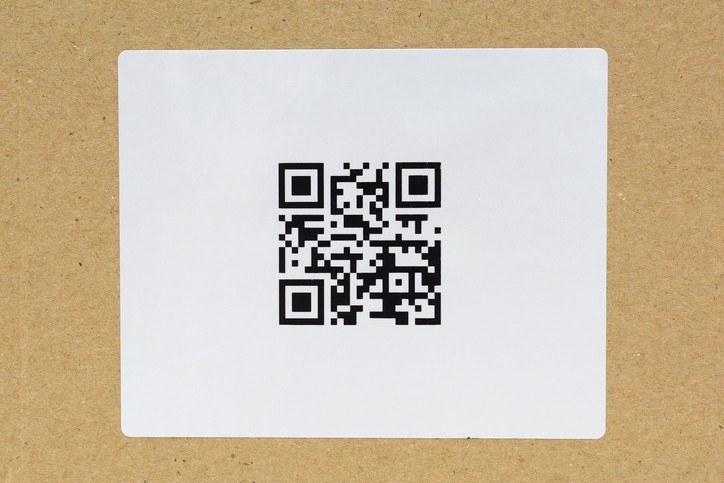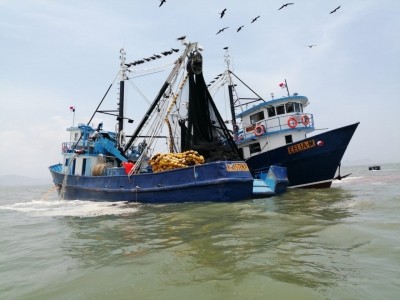Pilot assesses ways to ensure full traceability of marine by-products in the UK

The MarinTrust and HSSMI run seafood traceability (SeaTrace) pilot project is funded by the UK Seafood Innovation Fund (SIF), which is administered by the Centre for Environment, Fisheries and Aquaculture Science (CEFAS) on behalf of the UK Department for Environment, Food and Rural Affairs (DEFRA).
The hope is that such rigorous traceability would add value to by-products, discards from the processing of fish for human consumption, such as heads, viscera, skin, bones, which, in the UK market, constitute the bulk of raw materials for the production of fishmeal and fish oil, Francisco Aldon, CEO, MarinTrust, told us.
The partners' feasibility study generated plentiful insights on the data needs of representatives of the UK’s seafood and marine byproduct value chain and their existing data collection methods, he said.
They are now looking to the next stage of the project - evaluation of different tracking systems such as RFID, Barcode, and QR code in combination with cloud data storage architectures like blockchain technology, confirmed Aldon.
Both MarinTrust and HSSMI recognize that it is challenging for members of the UK seafood and marine by-products value chain to agree on the ideal traceability system, as the supply chain is extremely fragmented and paper-based.
And, following the first phase of the project, they agree that data tracking systems that can be quickly adopted and tested, rather than technology that will overwhelm a diverse and highly manual supply chain, is the answer.
Feasibility study
In order for SeaTrace project organizers to make a recommendation on an ideal traceability system, Aldon said they needed to first identify which Key Data Elements (KDEs) were important for all members of the value chain, and which are relevant to the production of fishmeal and fish oil production in the UK.
Marin Trust coordinated a workshop in December 2020, inviting UK seafood and marine by-product industry stakeholders to take part.
The aim was to gather insights on what was required by the various players - retailers, seafood processors, formulated feed producers, fishmeal plants and NGOs - in terms of their data requirements.
The key findings were:
- Of the 32 KDEs related to wild-capture of fish, only 11 were identified as being relevant to all respondents (though not always available). These were: dates of capture, gear type/fishing method, availability of catch coordinates, catch area, species name, common name, product form, processing location, product origin, the existence of an ethical welfare policy and ethical welfare policy standards.
- Despite the availability of source information and their associated KDEs, the seafood processors do not provide this detail to the fishmeal processing plants.
- KDEs from both wild capture and farmed sources are available at seafood processors.
- As volumes of fish by-product accumulate at both seafood processors and especially fishmeal processing plants, co-mingling of sources increasingly happens, making traceability of specific lots impossible.
- Fishmeal plants and feed producers would like to receive additional KDEs for wild capture supply chains in the future that they do not currently receive such as vessel name, vessel unique identifier, vessel registration details, vessel flag, vessel trip dates, dates of capture, gear type used, area of catch, details of fishery improvement projects, and product origin (including the factory that generated the by-product).
Existing data collection methods
Participants were also asked to complete a set of questionnaires so the project partners could understand what data collection systems they were currently using, the main issues with those, and future improvement plans.
Responses were obtained from a retailer, two processing plants, two feed producers, two fishmeal and fish oil producers and a pet food manufacturer, said Aldon.
In terms of the insights gained from that exercise, the majority of the respondents said that traceability is an important backbone for their business.
The main reasons why the stakeholders consider it key to have a reliable traceability system are:
- To comply with certification requirements.
- To help combat illegal fishing or labor exploitation.
- To mitigate risk
- To manage legal liability risks.
The workshop heard that process plants and feed producers must retain their traceability data for at least five years, and that the most used data recording system across the supply chain is a combination of a computer file-based system (Excel or pdf) and paper.
All the stakeholders seemed to be open to improve or modernize their traceability systems. However, just three of them considered it priority – the retailer and feed producers.
The findings show the main drivers for traceability improvements are:
- To comply with government regulation.
- To comply with certification requirement.
- To gain competitive advantage.
- To access to new markets.
The main issues that stakeholders are experiencing are a lack of fully automated traceability systems, the fact that there are several systems in different formats that do not talk to each other, and a heavy reliance on manual data handling processes.
Some 60% of the stakeholders said that is very difficult and time consuming to get the data from other members of the supply chain.
The main goals for future improvement of their traceability systems are:
- To make the information they receive from their supplier more reliable.
- To be able to provide traceability information to their customers.
- To fully digitalize their internal operation.
- To integrate systems across their different facilities.
All the stakeholders said they believe the demand for traceability from their customers is going to increase and 40% already have a short-term traceability improvement plan in place.
‘Useful engagement’
In weighing up the findings of the work to date on this project, HSSMI and MarinTrust said it is apparent that the variability in the sophistication of the systems used in the supply chain creates a huge bottleneck for data exchange. Manual data entry and electronic logbooks also pose a critical challenge in maintaining data integrity.
Additionally, they flagged that data ownership and security are concerns for industry stakeholders.
The feasibility study facilitated useful engagement and discussions with key stakeholders, they said.
“Identifying the current challenges is an important step toward designing relevant industrial solutions that can be applied across the seafood supply chain. In particular, the process of mapping the seafood supply chain provided valuable insight into the complexity and variability of processes and reinforced the requirements for clear guidelines.
“This work provides the foundations for the project’s next task [which is] to identify key data nodes and explore the application of data management technologies so that seafood supply chains can have a consistent approach for data recording and sharing across the supply chain.”








